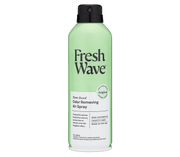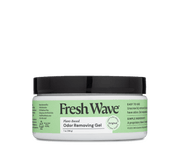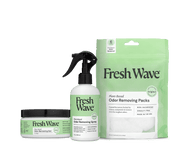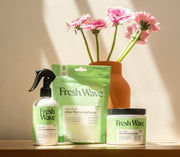Everyone has been guilty of leaving food in the fridge too long. Meal plans change and you forget to use that fresh fish. Or the broccoli you bought gets hidden behind a gallon of milk. The same milk that turned days ago and you hadn’t noticed.
Eventually, an unpleasant odor wafts out when you open the fridge door. As you choke on the awful aromas you realize it’s time to clean out your refrigerator. But what’s the most effective way to eliminate odors?
Fridge Odor Sources
- Expired food
- Liquid spills
- Plastic containers
- Interior shelving and walls
Get Rid of Stubborn Fridge Odors
The first step to eliminate fridge odor is removing the sources of smells — expired or moldy foods and drinks, mostly — and disposing outside to avoid smells spreading throughout your home. In general, it’s best to sort through your refrigerator every week to see if food or drinks need to be cleared out. Removing odorous foods should make a big difference, but smells can stick to fridge interiors, like shelves or walls. Plastic containers used for leftovers and the materials in fridge interiors can also absorb smells and cause them to linger even after odorous items are gone. Or spills can cause tough odors to linger. Take every item out of the refrigerator, remove shelves and racks, and clean with warm soapy water to remove any residue.
Once these are cleaned and dried, spritz with Fresh Wave Odor Removing Spray to neutralize any rotten food or spilled drink smells from the surface. You can also wipe down fridge walls, and the top and bottom, with Fresh Wave Laundry Booster. The natural, plant based formula in Fresh Wave works to safely eliminate odor molecules hiding in your fridge without leaving behind harmful chemicals that could get in food. Re-insert shelves and racks once they have dried.
Best Practices for Fridge Odor Prevention
To keep everything fresh and avoid future odor disasters, take precautionary measures when storing food and maintaining your fridge.
- Put away items immediately when you get home from a shopping trip.
- Cook or freeze raw meat before leaving it in the fridge past the recommended number of days.
- Clean up spills right away and do a regular food audit for expired foods.
- Keep temperature settings below 40 to discourage bacteria from growing on produce, meat, and perishables.
Can’t remember when you threw that chicken breast in the fridge or opened the gallon of milk? Jot down the open date or date or purchase on the packaging or attach a sticky note as a reminder for later. This will help you keep track of when the food was opened and serve as a reminder for when to toss it in the freezer.







